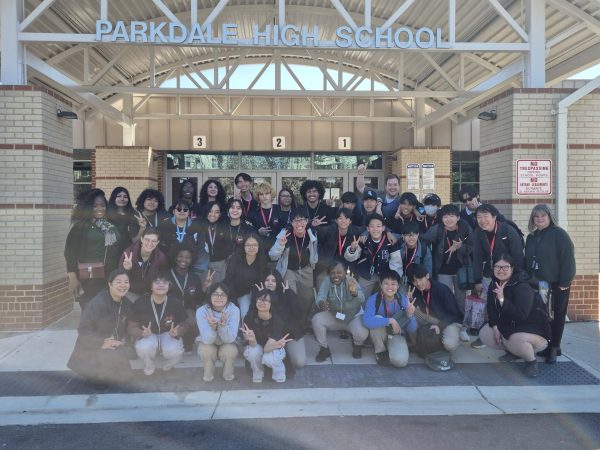First-generation college success blinded by struggles

While first-generation students experience pride in their accomplishments, many obstacles could prove to be deterring their success.
There have been varying definitions of what it means to be a first-generation student. One of the most widely known and accepted definitions recognizes a student as “first-generation” if neither of their parents have a four-year college degree or if they only receive support from one parent, who doesn’t have a four-year college degree. While it may be a dream come true to attend college as a first-generation student, that dream is often ruined by the many challenges that arise during this journey.
Various studies have shown that first-generation students often receive less emotional, informational, and financial support from their parents than students whose parents attended college. Due to these disparities, first-generation students often become very unmotivated since they quickly begin to lose sight of their goals from all the stress and uncertainty that is brought onto them. According to Very Well Family, four times as many first-generation college students will drop out of college compared to their peers who have at least one parent that pursued higher education.
One of the main struggles that first-generation students face is lack of knowledge. This often prevents them from fully taking advantage of the academic and social benefits of higher education. Because they aren’t fully aware of the existing resources that are specifically available for first-generation students, they are often left clueless and have no idea how to move forward with their academic plans.
“Many of them are very academically prepared, they’re really talented,” said Sarah E. Whitley, senior director of the Center for First-Generation Student Success. “It’s just sometimes they don’t have the information they need to go to the best school for them, to understand the financial aid process and to understand the right questions to ask along the way.”
While some students are left completely lost and have no idea what steps to take, there are others who take the risk of figuring things out on their own. Most first-generation students have to learn as they go through this process, which can be really confusing. Nonetheless, major areas of on-campus support are still utilized less by first-generation college students in relation to their peers. Only 55 percent of first-generation students made use of academic advising services in comparison to 72 percent of continuing-generation students.
On the other hand, first-generation students actually report higher rates of utilizing financial aid resources in comparison to their continuing-generation peers. Most first-generation students come from very low-income families, which makes the financial aspect of college even more difficult.
Although various types of financial support are available, research suggests that this student demographic is more likely to lack the financial literacy skills to make fully informed decisions during the process of obtaining a student loan. As the financial support system for first-generation students is very tenuous, it’s no surprise that students have a hard time making the right decisions.
However, students are optimistic that they will get help through the various financial aid opportunities available to them.
“Finances are not holding me back because there is so much help out there that you can look for,” explained senior Roxana Torres-Blanco. “So many scholarships and different programs help when it comes to money. You just have to look for them and apply.”
Many college experts are strongly urging students to constantly be diligent in asking questions and making sure they get as much information as possible in order to make decisions that will best suit them and their future. Additionally, it’s very important that first-generation students share their status with colleges and ask about programs and scholarships available to them, as well as reaching out to high school counselors who can help them identify programs.
Along with lack of knowledge and financial stress, also comes emotional distress, which is ten times worse. Most first-generation students find it very difficult leaving family behind to attend college away from home. While they feel homesick and lonely, like any other average student, they also feel very guilty because they feel like they’re abandoning their family. In particular, students from immigrant families, who are sometimes the only English speaker in their household, get the unnerving and difficult feeling that they are leaving their family alone with no one to help them.
On top of that, many students often feel pressured to excel in order to make their parents proud. Since they’re the first in their family to attend college, students feel like they have to be perfect in everything they do, especially because of the sacrifices their parents have made. According to Tomorrow’s Professor’s Postings at Stanford University, first-generation college students often need advice on how to handle this kind of pressure.
“At one point in my life I did feel pressure from my parents to excel,” Torres-Blanco expressed. “But as I continued to grow up and understand where my parents were coming from, it didn’t feel like pressure anymore. It was my motivation to continue working hard.”
Nevertheless, there are many other ways to make this journey a little easier for first-generation students. Here are a few tips to help students prepare themselves:
- Seek academic support resources early on.
- Find highly-motivated students to partner with.
- Get involved and make your college experience more comfortable.
- Don’t overload yourself with too many tasks.
- Build a solid support system that you can heavily rely on.
- Remember all the obstacles you have already overcome and continue pushing forward.
Your donation will support the student journalists of Parkdale High School. Your contribution will allow us to cover our annual website hosting costs and publish some printed editions, as well.

It all started freshman year when baby Cecilia walked into Ms. G's English class. She was clueless and scared to start high school, but little did she...









